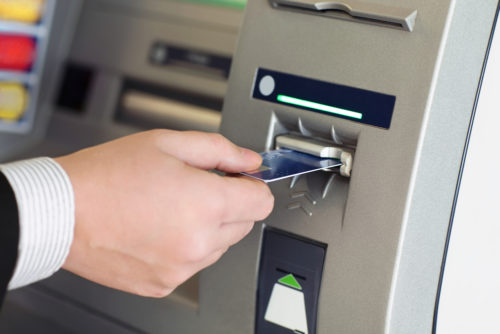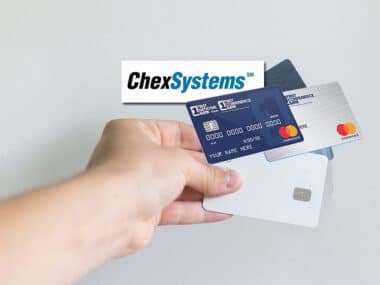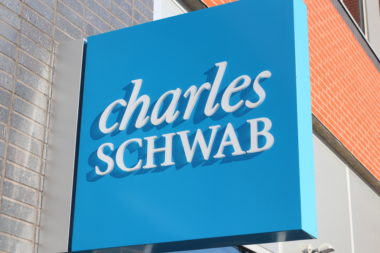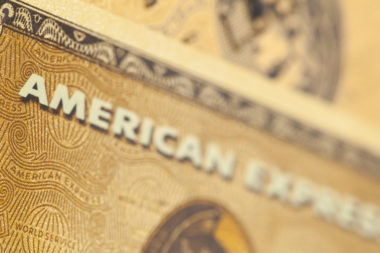Today there are two giants that dominate the payment industry: credit cards and debit cards. In your hand they both look pretty much the same, but behind the scenes, credit and debit cards couldn’t be more different. For many consumers who are used to paying with cash, making the transition to cards (and using those cards at ATMs) can be a challenging one. In order to make it all clear, let’s lay out the differences between cards, weigh their pros and cons, and talk about how each one relates to cold hard cash.
Credit Cards
Credit cards were the first modern monetary tool to hit the scene back in the 1950s. At the time, however, cash was still king. Credit cards did open up new avenues of convenience for consumers, but only at select stores with which the credit card company had an arrangement. It wasn’t until the ‘70s and ‘80s that credit cards really began to take off.
These days credit cards are everywhere and you would probably have a hard time finding an establishment that didn’t accept at least one of the major credit card brands. It’s not uncommon to be told that you should get and use a credit card by financial experts, but what are the real ups and downs of credit credit cards?
Pros:
- Using a credit card and paying it off regularly is a great way to build your credit score. Your credit score is a measure of how reliable you are when it comes to paying off debt, so regularly paying off small debts in the form of a credit card bill is a great way to improve your credit score. For more information on building your credit score, visit our credit score learning center.
- With credit cards, you can buy things that you don’t have the cash on hand for. Since credit card bills don’t come due until some time after you’ve made your purchase, you can spend money that you anticipate having in the future. This can be great if you like to jump on deals when they arise, but also know your budget and cash flow.
- Credit cards are ultra-convenient. It’s hard to find a place that doesn’t accept credit cards these days. This is likely because retailers have some good reasons to accept credit cards.
Cons:
- Credit card spending can get out of control if you’re not careful. Since you don’t have to reconcile your credit card spending until the end of the month, large bills can sneak up on you. If you’re not in a position to pay these bills, you can seriously damage your credit, forcing you to seek credit repair later on down the road.
- Credit card companies are looking to turn of profit of their own. They may try to hit you with hidden fees and annual fees for using their cards and overdue fees can be devastating if you’re not able to pay your bills on time.
Debit Cards
Compared to credit cards, debit cards are the new kid on the block. Having become popular in the 1990s, the average debit card may look indistinguishable from a credit card on the surface, but is very different in reality. Unlike credit cards, which track your spending before sending you a bill at the end of the month, debit cards draw money from your bank account as you spend it. In some ways, having a debit card is like having your bank account in your wallet. This has its pros and cons.
Pros:
- Once again, debit cards are incredibly convenient. Being able to draw from your bank account anywhere at anytime helps to make shopping and even paying the bills a great deal easier than cash or checks.
- Debit cards will keep you honest with your spending. Although there is a time and a place for taking on debt, many people like to spend only the money that they have on hand whenever possible. With a debit card, it’s much harder to spend money that you don’t have.
Cons:
- Debit cards are far from without fees. Although you can’t suffer from overdue fees like you could on a credit card, it is possible to incur overdraft fees if you try to spend money that you don’t have.
- Debit cards are less secure than credit cards in some ways. If your credit card is used without your permission, then it’s the credit card company’s money that has been spent, not yours. Since your debit card is tied directly to your bank account, thieves can effectively use it to steal directly from you.
Bringing it All Together With ATMs
In spite of all the convenience that cards bring to our lives, sometimes it’s good just to pay with cold hard cash. In some cases using cash is a matter of personal preference, but for some things like pop-up markets or mom and pop retailers, cash is the only option available.
This is where the ATM reigns supreme. Instead of carrying tons of cash on you on the off chance that you might need it, you can head over to an ATM if you see a purchase opportunity that doesn’t jive with your card. However, ATMs aren’t free. Be prepared to pay associated fees. These might include:
- Fees for using an ATM that doesn’t belong to your home bank (using either credit or debit can incur this fee).
- High interest rates on cash advances from an ATM through your credit card. These are usually around 24 percent interest.
- Increased fees for ATMs in strategic locations. If a bank places an ATM in a high traffic area and they’ve got the only one there, you’d better believe that they will jack up the fees.
Whether your use a credit card, debit card, or you like to take cash out of an ATM, it’s easier than ever to spend in today’s economy. Use your purchasing tools wisely and be aware of possible fees and downsides that you may pay as the price of convenience.
Looking for more information on how to use your plastic? Check out our credit card resource and learning center for more guides.
Image Source: https://depositphotos.com/





